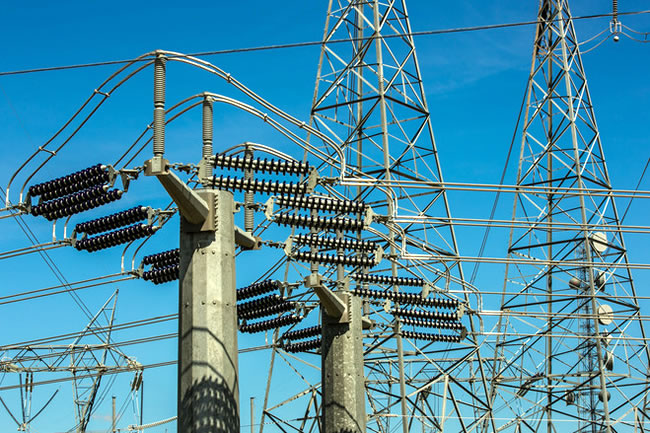Association of Electricity Generation Companies (GenCos) on Thursday, attributed the incessant collapse of national power grip to excessive volatile load by steel mills, weak and old infrastructure by the Transmission Company of Nigeria (TCN) and the unavailability of most transmission lines.
The GENCOs Executive Secretary, Joy Ogaji who stated this during the investigative hearing held at the instance of House Committee on Power, chaired by Hon. Magaji Aliyu, argued that the national grid collapsed 136 times between 2013 and 2022.
While noting that by 25th October this year, the privatization of the power sector will be exactly 9 years, she noted that at the rate of 4000MW power generation being generated currently, Nigeria is doing about 31MW per annum, hence “we need to ask ourselves if we really need to grow or we are building industry.”
According to her, “in 2013 there were two partial and two total (national grid collapse); I was asking some senior engineers and they told me there was no difference between partial and total.
“In 2014, there were four partial collapses and there were nine, totaling 13; in 205 we have a total of 10, in2016, we have a total of 28; in 2017 we have a total of 24; in 2018 we have a total of 13; in 2019 we have a total of 10; in 2020 we have a total of four; in 2021 we have a total of 4 and in 2022 from January till date, we have a total of 6, bringing a total from 2013 to date to 136 times. The year with the highest number of grid collapses was 2016,” she noted.
While acknowledging that the rate of grid collapse has been on the decrease, she explained that the “grid collapse is reducing because Gencos machines are now being used to manage the grid contrary to the grid code provision and you will see that 97% of the time, the grid is on a very high frequency; 51 point something hertz and I have the evidence for anybody that wants to see, I have been tracking it since 2015.
“Why a grid collapse, one of the reasons we have found is, is there is excessive volatile load mostly through steel mills. The Nigerian network has over 50 steel mills connected to the grid with heavy load from 3 to 35 megawatts going from minimum to maximum; minimum in a continuous circuit of 6 -10 minutes.
“Service interruption due to the inability of Discos to take note, weak grid conditions forcing apparatus disruption, TCN radial lines, most of TCN lines are radial not double circuit, thereby limiting the redundancy in the system which increases system instability.
“Inadequate and old infrastructure to meet demands, transmission and distribution manned by insufficient engineers and technicians, poor communication and coordination of activities between TCN and Discos.”
But in his presentation earlier, the Minister of State for Power, Godwin Jeddy- Agba refuted the claims of grip collapse, saying that none has occurred this year.
He would rather call it system disruptions which he said had human elements or politically motivated.
He said: “So, please let us understand that we have not had any collapse this year, we have had disruptions and disruptions could lead to blackouts, a blackout is not a collapse. These ones we have had this year, in fact, four of them but they have not been a collapse, it is disruption. And disruptions have been a result of human factors, they could be increment factors, they could be political factors, it could be other factors.
“For instance, sometime last month we had a blackout for a short while, it was due to, and we saw on social media some young men switching off the system, that is not a collapse. That is deliberate vandalisation, in fact, it is sabotage if you ask my opinion.
ALSO READ FROM NIGERIAN TRIBUNE
“How can young men go and switch system, putting the nation in back out just because of some grudges which by the grace of God is a union matter and I am handling that and I assure you Mr Speaker that that matter is being brought to book and at the end of this week, our report will be submitted and union and us will agree on something and it will never happen again by His grace.
“So having made it clear to us that we have not had system collapse, let us take it from the point of disruptions that I have told you, one is from the union, second is from the communities could also be like what happened in Akwa-Ibom, the communities disrupted something last year, somewhat early this year we have blackout towards South-south part of the country.
“Thirdly, we have had problems with gas. The gas supply is too high for our power generating stations. Gas supply has been a problem but we are tackling that already because we are discussing with NNPC and Nigerian Gas Corporation, we are coming to an agreement and gas is flowing systematically now to the generating companies and we are seeing a steady increment in generation.
“Don’t you agree with me that power has improved of late? We are enjoying power improvement and we assure you that it is continuous. And you see when there is a disruption in the power system, the mechanisms made that the system automatically shut down. The system is made to shut down to cause us less damage so it will go down if that happens.”
Also speaking at the hearing, the managing director of Transmission Company of Nigeria (TCN), Sule Abdulaziz said there had been four system collapses and two partial collapses just as he stated that the transmission capacity of the company was about 8,100 megawatts.
“We have four system collapse, then we have two partial collapses and this is what we submitted. On transmission capacity, we have a capacity of 8,100 megawatts. There is no day when a generation company will say we have generated so many megawatts and TCN is unable to evacuate it. We are challenging generation companies to come out if there’s any day that we can not evacuate it,” he said.
WATCH TOP VIDEOS FROM NIGERIAN TRIBUNE TV
- Let’s Talk About SELF-AWARENESS
- Is Your Confidence Mistaken for Pride? Let’s talk about it
- Is Etiquette About Perfection…Or Just Not Being Rude?
- Top Psychologist Reveal 3 Signs You’re Struggling With Imposter Syndrome
- Do You Pick Up Work-Related Calls at Midnight or Never? Let’s Talk About Boundaries







